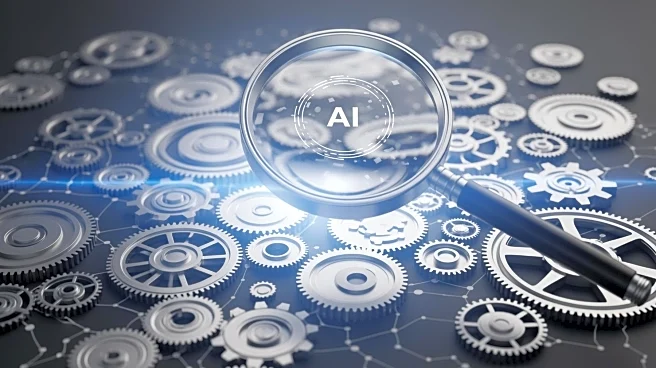What's Happening?
The integration of artificial intelligence (AI) in the hiring process is reshaping how job seekers approach their career searches. As businesses increasingly utilize AI for recruitment, applicants are encouraged
to adapt by leveraging AI tools strategically. This involves using AI to aggregate job listings, tailor resumes with relevant keywords, and simulate interview scenarios. The emphasis is on maintaining authenticity and integrity throughout the process, ensuring that AI is used to enhance rather than fabricate application materials. Additionally, job seekers are advised to manage their digital footprints and use AI to monitor their online reputations.
Why It's Important?
The shift towards AI-assisted hiring processes has significant implications for job seekers and the broader labor market. By understanding and utilizing AI tools, applicants can improve their chances of success in a competitive job market. This technological fluency can lead to more efficient job searches, expanded opportunities, and refined communication skills. However, the reliance on AI also raises ethical considerations, as job seekers must balance technological advantages with personal authenticity and professionalism. The ability to navigate AI-driven hiring processes effectively can be a critical factor in career advancement.
What's Next?
As AI continues to evolve, job seekers will need to stay informed about new tools and strategies to remain competitive. This includes ongoing education about AI's role in recruitment and the development of skills that align with AI-driven assessments. Employers may also refine their AI systems to better evaluate candidates, potentially leading to more personalized and efficient hiring processes. The dialogue around ethical AI use in hiring is likely to grow, prompting discussions about transparency and fairness in recruitment practices.
Beyond the Headlines
The increasing use of AI in hiring processes highlights broader societal shifts towards digitalization and automation. This trend may influence educational curricula, with institutions potentially incorporating AI literacy into career preparation programs. Additionally, the ethical dimensions of AI in hiring could lead to regulatory discussions, as stakeholders seek to ensure that AI systems are used responsibly and equitably. The long-term impact of AI on employment patterns and workforce dynamics remains a critical area of exploration.










